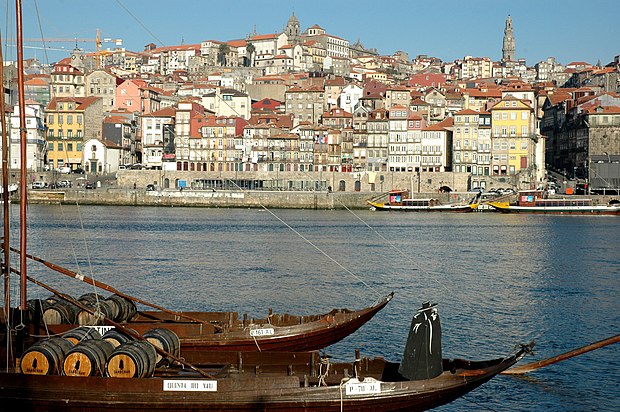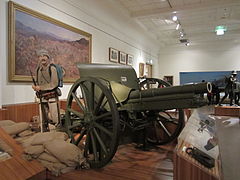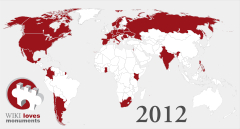Wikipedia:Wikipedia Signpost/2012-08-27/News and notes
Tough journey for new travel guide

Wikimedia editors have been debating a community proposal for the adoption of a new project to host free travel-guide content. The debate reached a new stage when a three-month request for comment on Meta came to an end, with a decision to set up the first new type of Wikimedia project in half a decade (Signpost coverage). The original proposal for the travel guide unfolded during April on Meta and the Wikimedia-l mailing lists (I, II, and III; Signpost coverage), centring around the wish of volunteer contributors to the WikiTravel project to work in a non-commercial environment.
WikiTravel (WikiTravel.org) is owned by the for-profit California-based company Internet Brands (website), which operates online media, community, and e-commerce sites in vertical markets. Internet Brands is in turn owned by private equity investors Hellman & Friedman LLC, which bought the company in a US$640M deal almost a year ago. According to The New York Times, Investopedia, and Small Cap Investor, Internet Brands' strategy is to focus on specific target audiences that tend to be attractive to advertisers. The company's portfolio of websites includes many with social-media features, and has a monthly average of 112 million unique visitors (up from 70 million at the end of 2010), and 805 million page views; the company has more than 40,000 direct advertisers. The English-language version of WikiTravel.org consists of some 25,000 freely licensed articles.
- Early discussions
The initial proposal was backed by many volunteer editors at Wikitravel.org, including project founders Evan Prodromou and Michele Ann Jenkins, as well as Stefan Fussan, chairman of the board of the German non-profit Wikivoyage Association. The association and its project Wikivoyage—a long-standing fork from Wikitravel.org, run by a mainly German volunteer community with some input from Italian volunteers—formally joined the proposal in June 2012, when the association's general assembly unanimously endorsed it (Signpost coverage). The association offered the domain Wikivoyage.org, and is currently seeking recognition by Wikimedia as an independent thematic organisation. The travel-guide proposal, for which Doc James was a key advocate, quickly gathered support among editors.
- RfC Mark 1
The RfC, conducted in several stages, focused on issues such as whether travel content can be regarded as educational, potential conflict-of-interest issues, and how the new project would interact with other Wikimedia projects and with those hosted by third parties.
Proponents have argued that starting with the existing CC-by-SA freely licensed travel content and giving existing volunteer communities a new home would bring significant benefits to those communities, to readers, and to the Wikimedia movement. Editors and readers of travel content would gain advantages from being part of a large and powerful non-commercial movement, and Wikimedia would be able to broaden the scope of its free educational material. The ability of the current travel-content communities to create a properly functioning new project would be facilitated by the improved software available from being hosted by the Wikimedia Foundation (the current travel-guide content is run on an older version of MediaWiki).
Opponents of the move have argued that travel content is not sufficiently educational and is therefore inconsistent with Wikimedia's mission, that setting up a wiki for travel-guide content would offer no conceivable benefit to anyone, that other Wikimedia projects could be disrupted by a potentially resource-intensive move, that travel content involves inherent conflicts of interest, and that there could be technical problems such as the transfer of page histories.
- Wikimania 2012—the debate crystallises
In the run-up to Wikimania 2012 last month, the ayes in the Meta RfC had taken an early lead, although several contested issues remained unresolved and there were concerns about limited participation in the debate (Signpost coverage). On 11 July there were 107 ayes, with 11 nays focusing on unresolved issues. Within two days the WMF board, meeting at Wikimania, had examined the proposal and issued a letter to the community, stating the board's opinion that several free travel-content projects can coexist and emphasising the value the Wikimedia movement places on community-consensus decision-making. At the same time, the board announced that it wanted to see an extension of the RfC for at least a further six weeks before looking at the possibility of limited technical support for the community-led initiative. During Wikimania, interested community members met in person for the first time to chart a way ahead.
- RfC rebooted
To tackle the participation issue, the community set up a globally displayed notice on Meta in the second half of July (after just a side-notice in April), significantly boosting involvement. At the same time, Internet Brands increased its engagement in the debate through the participation of IBobi, one of its community managers. On 13 August, IBobi issued a company response to the proposal, pointing to the results of its reader survey as evidence that the project has been working well under its stewardship. IBobi proposed that Wikitravel.org could become an Internet Brands–hosted Wikimedia sister project, as long as Wikimedia refrained from setting up a new travel-guide project. However, community members disputed the neutrality of the survey questions, among other issues raised by the company.
A senior Wikimedian volunteer who supports the creation of the new project told the Signpost that Internet Brands nevertheless has a perfect right to put its case as to why the status quo should be maintained. Indeed, Wikitravel's Terms of use clearly states that "if you continue to use the service against our wishes, we reserve the right to use whatever means available—technical or legal—to prevent you from disrupting our work together." On 21 August, Internet Brands' legal department set up an account on the site and issued this warning to eight volunteer editors: "Please be advised that your recent actions communicating directly with members of Wikitravel could put you in violation of numerous federal and state laws. We strongly urge you to cease and desist all action detrimental to Wikitravel.org. If you persist in this course of conduct, you will potentially be a named defendant, and therefore liable for any and all resulting damages."
- Community consensus and the way forward
On 23 August, the RfC ended with 78% support for setting up a Wikimedia travel-guide project (540 ayes to 152 nays). A member of the WMF board has said "the board is reviewing the RfC and its talk page over the next week. We are going to share our thoughts with you soon on the RfC's talk page. Please feel free to leave comments there, that's still possible and will be read."
Meanwhile, the Commons community has established a task force to manage the transfer of freely licensed files in any event, and Wikivoyage has moved to import and host freely licensed Wikitravel.org articles. WikiVoyage has also begun a clean-up of its own policies to align itself with Wikimedia standards.
The Signpost invited Internet Brands to put its views on editors' complaints that the version of wiki software used on wikitravel.org is outmoded, and that there has been an intensification of advertising on the site that may undermine neutrality. We also asked about the strategy behind the talk-page warnings in the light of the company's stated desire to "bring back old non-admin regulars". Although we responded to Internet Brands' subsequent request that we clarify the Signpost's affiliations, at the time of publication we have received no reply to our questions.

In brief

- Wikimedia South Africa meeting: The South African chapter will host its first annual general meeting on 1 September to look at its own institutional structure and to discuss projects such as Wiki Loves Monuments in South Africa. Details have been published on Meta.
- Wikipedia Takes the Australian War Memorial—results: On 25 August, Wikipedians took on Australia's national memorial to the members of all its armed forces and supporting organisations who have died or participated in war. The results are being published on Commons. Users interested in Wiki Loves Monuments might also look at the upcoming Wikipedia takes America events in September and other parts of the global photo contest.
- English Wikipedia Arbitration report: there continue to be no open cases before the committee. Five clarifications and requests for amendments are currently open, which arose from decisions reached in the Sathya Sai Baba (2006), The Troubles (2007; three separate requests), and Race and intelligence (2010) cases.
- Steward policy reform debate extension: There has been a proposal to extend the RfC on whether to adopt proposed changes to the policies governing the actions of Wikimedia stewards—users with complete access to the wiki interface on all Wikimedia wikis. The RfC aims to gather more community feedback and to resolve several issues.
- Main-page redesign competition: 17 proposals have been lodged, and discussion about the issue continues on the competition talk page. Editors are welcome to submit their own proposals until 30 September.
- Editor survey gears up: Preparations for this year's editor survey are in their final stages on Meta. The survey will be conducted for up to 10 days from late August, and results will be publicly shared.



Discuss this story